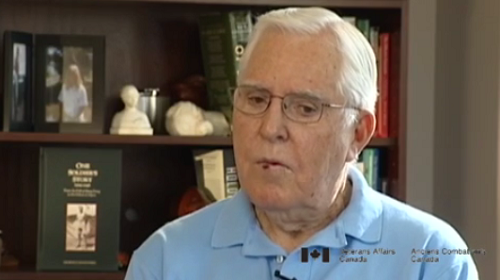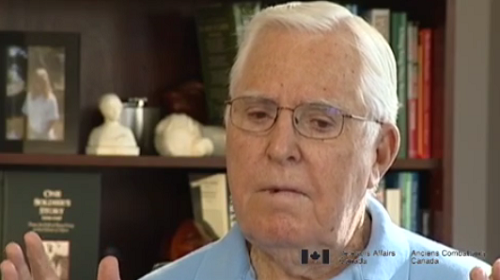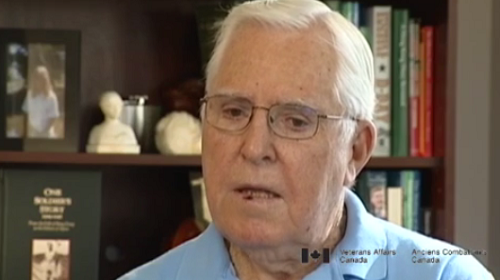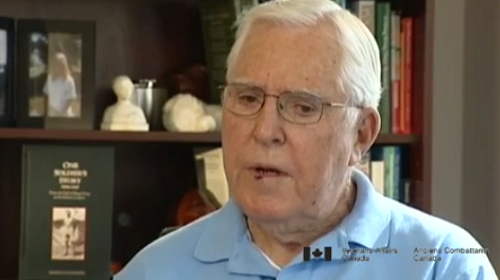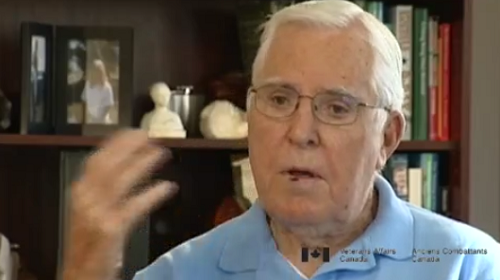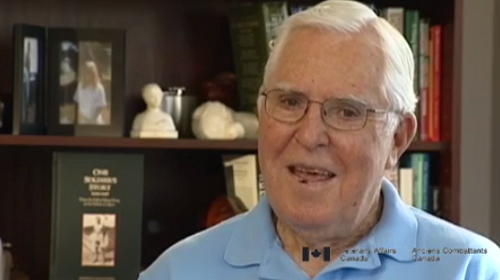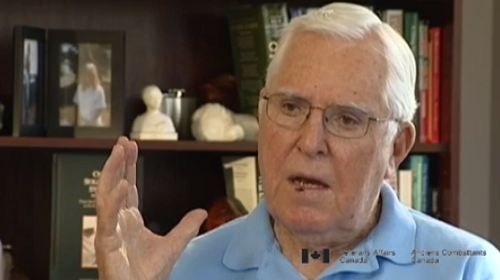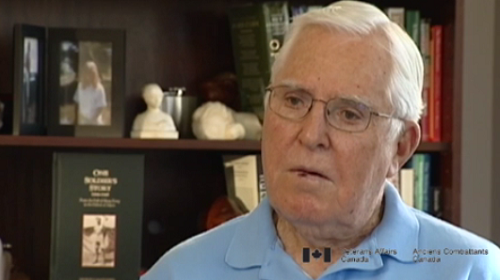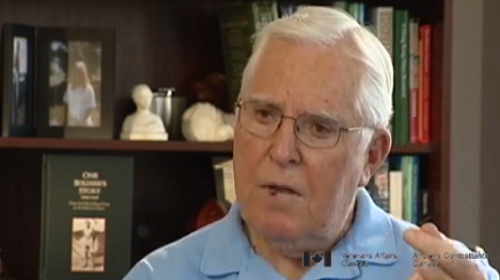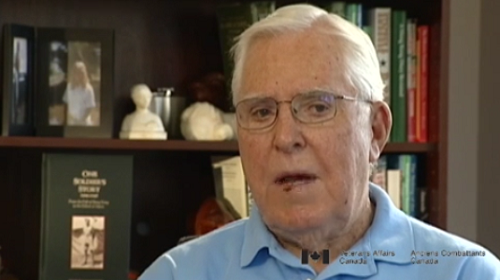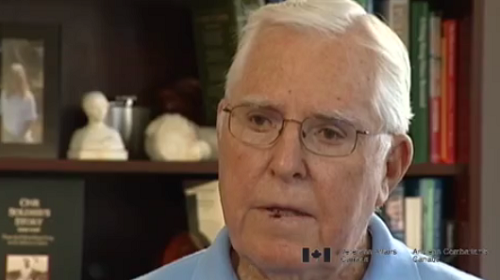POW Painted on the Roof
Heroes Remember
POW Painted on the Roof
Transcript
And so now we have the situation where we're in command
all right but we have no idea what's going to happen now
because we can't contact, we don't have any means of...
we can hear, we can receive
but we can't broadcast.
So what has to be done?
Well, the first thing we had to do, we had to get some food.
So we divided our men up into teams of six or eight
with a corporal or a sergeant and we took
all of the supplies from the Japanese stores;
boots, leathers belts, soap, tinned salmon, anything we could
get our hands on, went into the farm, the peasant area
surrounding the camp and began to trade for food.
The Japanese farmers, peasants
were happy to trade for food.
We traded Japanese uniforms,
anything we could find.
So we began to collect food, very cautiously,
it was a very dangerous thing to do
because we didn't know if the Japanese military
were going to be so incensed
that they would kill us anyway.
This went on for a while and finally we heard
that the Americans were going to start a grid search,
on the radio we heard, “We're going to
start a grid search of Japan.”
They were going to divide Japan up in squares
and fly over each square.
So we went down into a little village nearby
and we got some paint and some brushes
and we painted POW on the roof of our camp.
And within a few days, an American plane flew over,
discovered us, and began to drop food to us.
And we were there for about a month living on the edge of disaster
but now being fed every day by tons of food,
medicine, clothing from the air.
And a careful watch over the camp by the American Air Force.
So the Japanese civilians around us knew now
that we were in a protected zone and they were so sick of the war,
so glad to see the end of it that we escaped any conflict
whatever and eventually, one month later,
the Americans landed at the Port of Kamisi (sp)
nearby and came up
in armoured vehicles, took our sick
and put them on the big hospital ship and we were free.
Description
With the realization the war was over, Canadian soldiers began to gather food and signal to the American planes.
George MacDonell
Mr. MacDonell was born in Edmonton, Alberta on August 15, 1922. He lost his parents at an early age and was raised by his uncle and family. In 1939, he ran away from home and made the decision to join the army. Mr. MacDonell served as Company Sergeant Major during the Battle of Hong Kong and in 1941 was captured and was a POW for four years. Post-military, Mr. MacDonell earned his Bachelor of Arts at the University of Toronto and went on to have a successful business career. Mr. MacDonell is very active in his city and very proud of having served. Mr. MacDonell is retired and resides in Toronto, Ontario.
Meta Data
- Medium:
- Video
- Owner:
- Veterans Affairs Canada
- Duration:
- 3:01
- Person Interviewed:
- George MacDonell
- War, Conflict or Mission:
- Second World War
- Branch:
- Army
- Units/Ship:
- Royal Rifles of Canada
- Occupation:
- Vehicle Technician
Related Videos
- Date modified:




